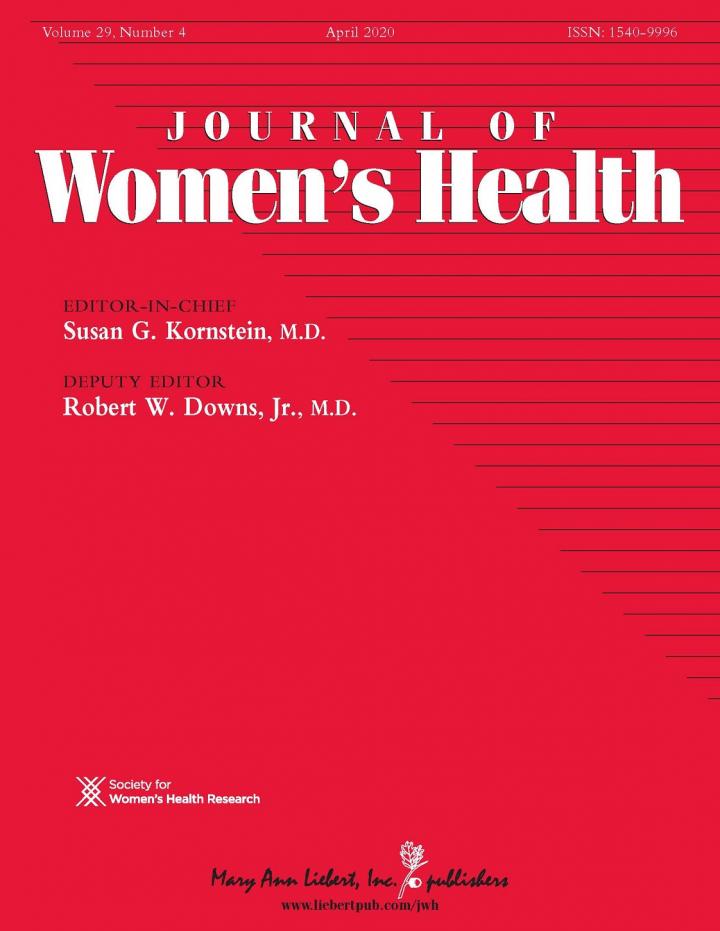
Credit: Mary Ann Liebert, Inc., publishers
New Rochelle, NY, May 11, 2020–A new study has shown that initiating screening for gestational diabetes in high-risk women in the first trimester of pregnancy instead of the second trimester, allowing for treatment to start earlier, can help optimize gestational weight gain. The timing of gestational diabetes diagnosis reduced gestational weight gain in the first trimester and in the pregnancy overall, according to the study published in Journal of Women’s Health, a peer-reviewed publication from Mary Ann Liebert, Inc., publishers. Click here to read the full-text article on the Journal of Women’s Health website through June 11, 2020.
Screening for gestational diabetes is usually performed during the second trimester at 24-28 weeks. In this study, high-risk women — those who were obese or had a history of gestational diabetes — were screened during the first trimester, at about 10 weeks. Women diagnosed early with gestational diabetes had significantly less gestational weight gain (2.4 kg less) than women diagnosed during the second trimester. Furthermore, among obese women, only those diagnosed with early gestational diabetes were, on average, able to meet the Institute of Medicine guidelines for overall gestational weight gain of less than 9.0 kg (mean 8.1 kg). Obese women diagnosed with gestational diabetes were less likely to exceed these guidelines if they were diagnosed earlier rather than later in pregnancy.
###
The article entitled “Timing of Gestational Diabetes Diagnosis by Maternal Obesity Status: Impact on Gestational Weight Gain in a Diverse Population” was coauthored by Teresa Hillier, MD and colleagues from Kaiser Permanente (Portland, OR and Honolulu, HI).
Susan G. Kornstein, MD, Editor-in-Chief of Journal of Women’s Health and Executive Director of the Virginia Commonwealth University Institute for Women’s Health, Richmond, VA, states: “For women at high risk for gestational diabetes, earlier screening during the first trimester of pregnancy can provide a safety net to ensure a safer pregnancy. The data presented by Hillier et al are compelling and should encourage earlier screening for glucose intolerance and the initiation of lifestyle changes and appropriate treatment to prevent excessive weight gain.”
Research reported in this publication was supported by the National Institutes of Health under Award Number 1R01HD058015. The content is solely the responsibility of the authors and does not necessarily represent the official views of the National Institutes of Health.
About the Journal
Journal of Women’s Health published monthly, is a core multidisciplinary journal dedicated to the diseases and conditions that hold greater risk for or are more prevalent among women, as well as diseases that present differently in women. Led by Editor-in-Chief Susan G. Kornstein, MD, Executive Director of the Virginia Commonwealth University Institute for Women’s Health, Richmond, VA, the Journal covers the latest advances and clinical applications of new diagnostic procedures and therapeutic protocols for the prevention and management of women’s healthcare issues. Complete tables of content and a sample issue may be viewed on the >Journal of Women’s Health website. Journal of Women’s Health is the official journal of the Society for Women’s Health Research.
About the Publisher
Mary Ann Liebert, Inc., publishers is a privately held, fully integrated media company known for establishing authoritative peer-reviewed journals in many promising areas of science and biomedical research, including LGBT Health, Transgender Health, Population Health Management, and Breastfeeding Medicine. Its biotechnology trade magazine, GEN (Genetic Engineering & Biotechnology News), was the first in its field and is today the industry’s most widely read publication worldwide. A complete list of the firm’s 90 journals, books, and newsmagazines is available on the Mary Ann Liebert, Inc., publishers website.
Media Contact
Kathryn Ryan
[email protected]
Original Source
https:/
Related Journal Article
http://dx.




